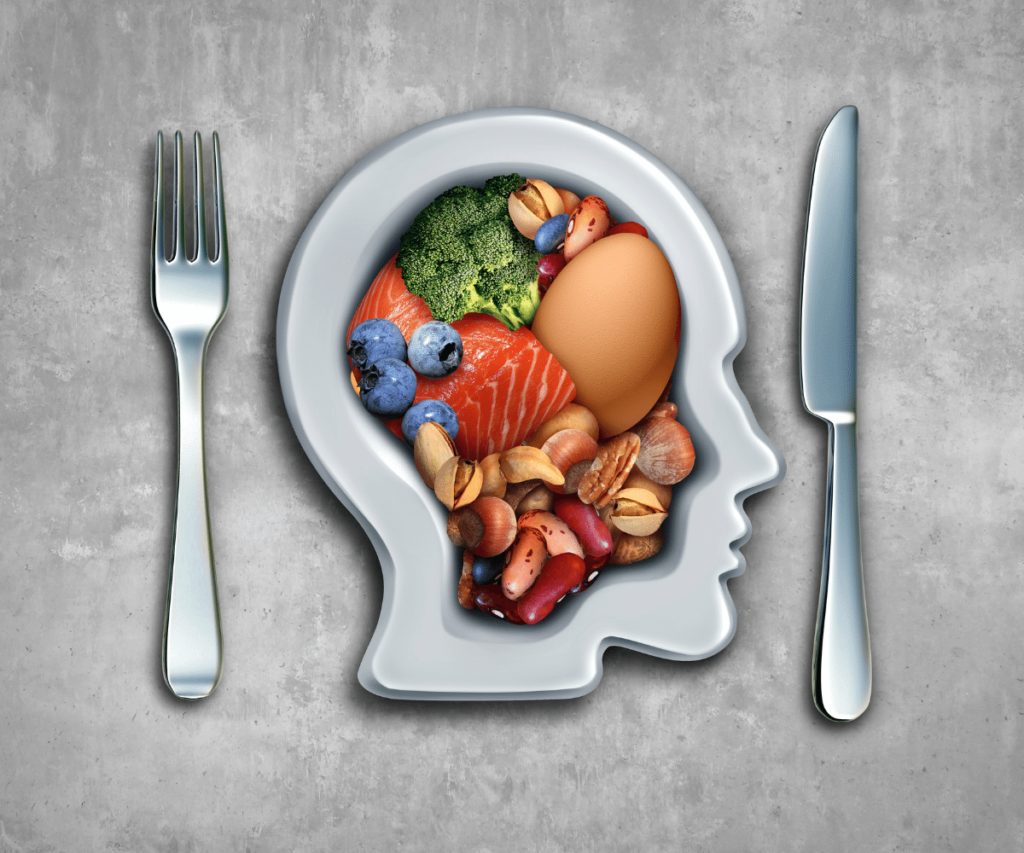Whenever you deal with mental health issues, you never try to ask questions like – am I eating the right kind of food? Am I binge eating on chips and other unhealthy stuff? You don’t ask these questions because you are not aware of how much diet affects your mental health. The risk of depression rises to 80% among teenagers who take a low-quality diet.
Plus, there is double the risk of Attention-Deficit Disorder (ADD), which is a condition that involves serious attention and concentration problems.
One of the best and natural interventions to deal with mental health problems is diet. By making healthy choices about what to eat and not eat, you create good diet habits that help you to look after your mental health.
To develop strong motivation for dieting, you need to read further to know more about the link between diet and mental health.
DIET TACKLES MOOD PROBLEMS
The food you eat affects your mood. You need to eat high-quality food like whole grains and vegetables which contain antioxidants, vitamins, and minerals to provide nourishment to the brain.
This type of food prevents oxidative stress. Oxidative stress is a psychologically stressful condition in which there is a rise in the level of oxidants in the body. This leads to the damage of cells, proteins, and leads to aging.
To prevent oxidative stress from damaging the body, you should avoid processed food like crisps, cakes, biscuits, etc.
It is important to remember that the intake of a diet high in refined sugar leads to mood disorders like depression. Sending the right type of food to the digestive system affects your mood.
This is because almost 95% of the serotonin hormone is produced in the gastrointestinal tract. Serotonin is a neurotransmitter and it helps to regulate appetite and prevent mood swings.
A careful selection and intake of serotonin rich food like salmon, nuts, and seeds will help you to boost the serotonin levels in the body. As a result, you can manage your mood naturally and efficiently.
TYPE OF DIET AFFECTS THE MENTAL HEALTH
Mediterranean diet promotes better mental health. Therefore, you must have a basic knowledge of the important components of this diet so that you can easily pick them out when you go to the grocery store.
Go for food items like olive oil, whole grains, walnuts, and beans. Your diet should include fresh fruits and vegetables as well. This change in diet introduces you to a wide variety of healthy food choices that can help you feel good.
For example, whole grains are a rich source for the production of tryptophan, an amino acid that triggers the production of serotonin.
Also, avoid chips and try munching on walnuts instead. Eating walnuts increases the growth of nerve cells that are important for good mental health.
LINK BETWEEN DIET AND DEPRESSION
It is found that there is an improvement in people suffering from moderate to severe depression after making changes to the diet. The diet focuses more on fresh foods like fruits and vegetables which are rich in nutrients and the diet excludes junk food, sweets, etc. By making significant changes to the diet, over 32% of the participants saw an improvement in depression symptoms.

USE DIET TO DEAL WITH EMOTIONAL PROBLEMS
Some days are so bad that you would rather sit at home and eat a tub of chocolate ice-cream. As you get stressed about relationships, work-pressures, you tend to get affected emotionally.
One way you deal with emotional problems is by indulging in food. That is, you unconsciously crave and pick food like ice-creams or sweets. By eating this type of food, you try to soothe emotions like sadness, anger, and fear.
However, you should know that you fall into a vicious trap of unhealthy eating which can trigger mental health problems. To deal with food cravings, you should focus on diet.
Remember that diet is not just about what kind of food you eat, it is also about cultivating a state of mind that keeps you alert and focused.
Start by paying attention to your food patterns. Do you eat when you are sad? Do you eat whenever you feel bad about yourself? Think about how food makes you feel.
Be aware of how eating chocolates make you feel? Ask yourself about how you feel after eating more veggies for lunch? Be more observant of your food choices.
Notice what kind of products you pick at the grocery store. If you have more chocolates and sweets in your carry bag, it is time for you to take leave them behind





